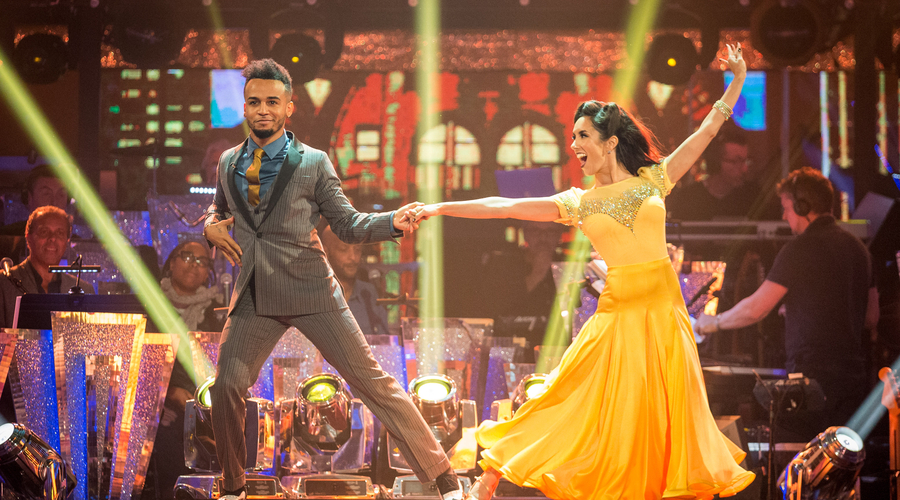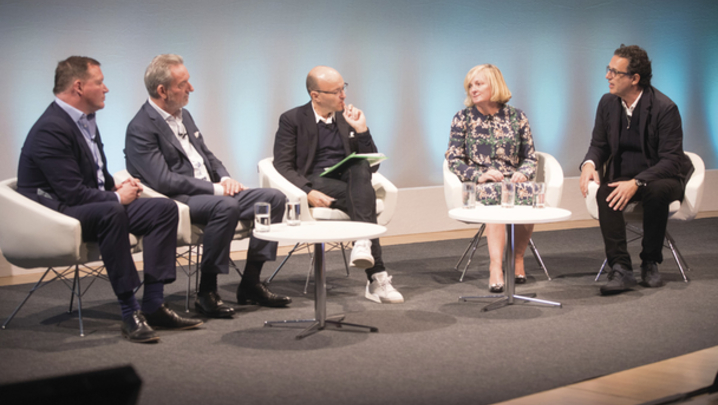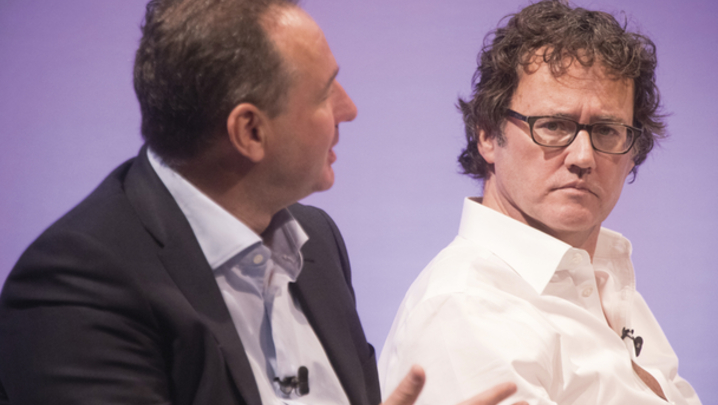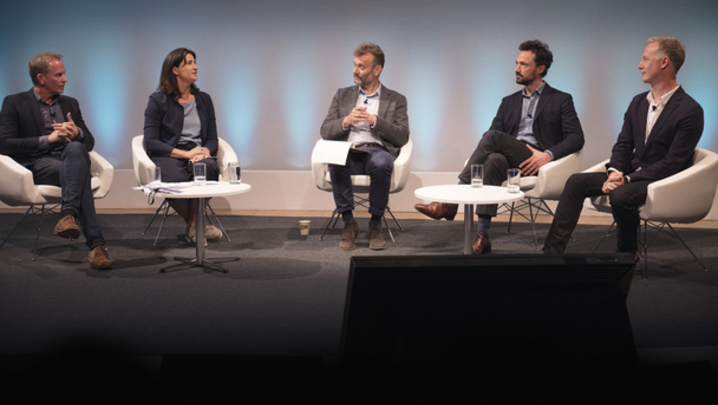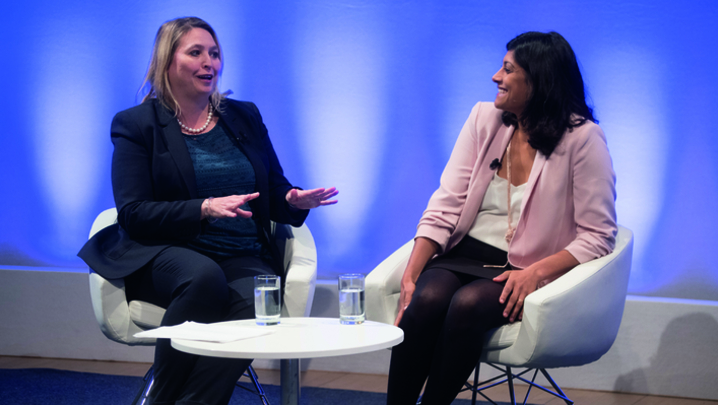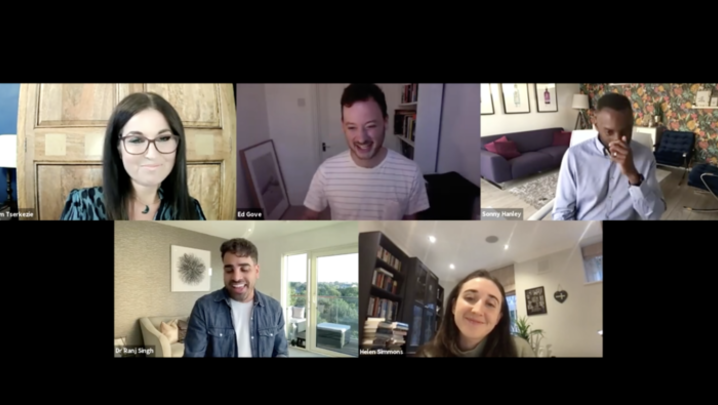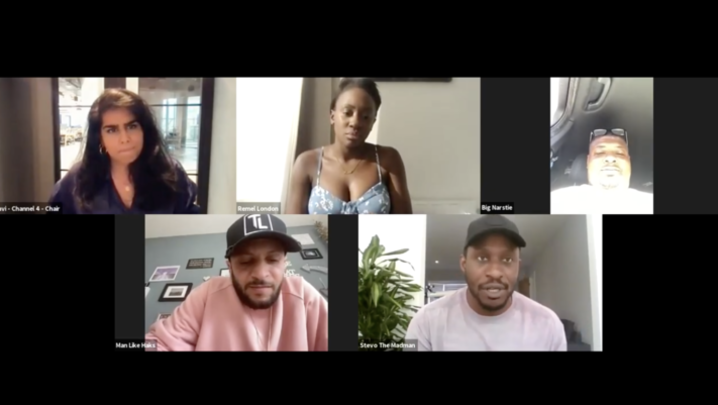What is the secret to finding the next Strictly Come Dancing or Britain’s Got Talent, asks Tara Conlan
Wheels and deals – of the kind done with talent – were the name of the game in an entertaining look at the state of TV entertainment, chaired by presenter and Endemol creative director Richard Osman.
The audience was treated to a special version of Sky 1’s A League of Their Own, which director of Sky Arts and non-scripted Phil Edgar-Jones joked had cost most of his development budget.
It featured footage of a race at Silverstone pitting Sky director of programmes Zai Bennett against Big Talk CEO Kenton Allen, RTS CEO Theresa Wise and A+E Networks UK programming vice-president Heather Jones.
The race, won by Allen (who, Osman remarked, had “a touch of the Clarkson” about him), proved the wide appeal of entertainment as the Cambridge audience lapped it up.
Osman said that he wanted to explore the issue of several channels having huge hits, such as I’m A Celebrity… or Strictly, but most of which were at least a decade old. And why newer hits tended to be shows such as Gogglebox, rather than traditional entertainment shows.
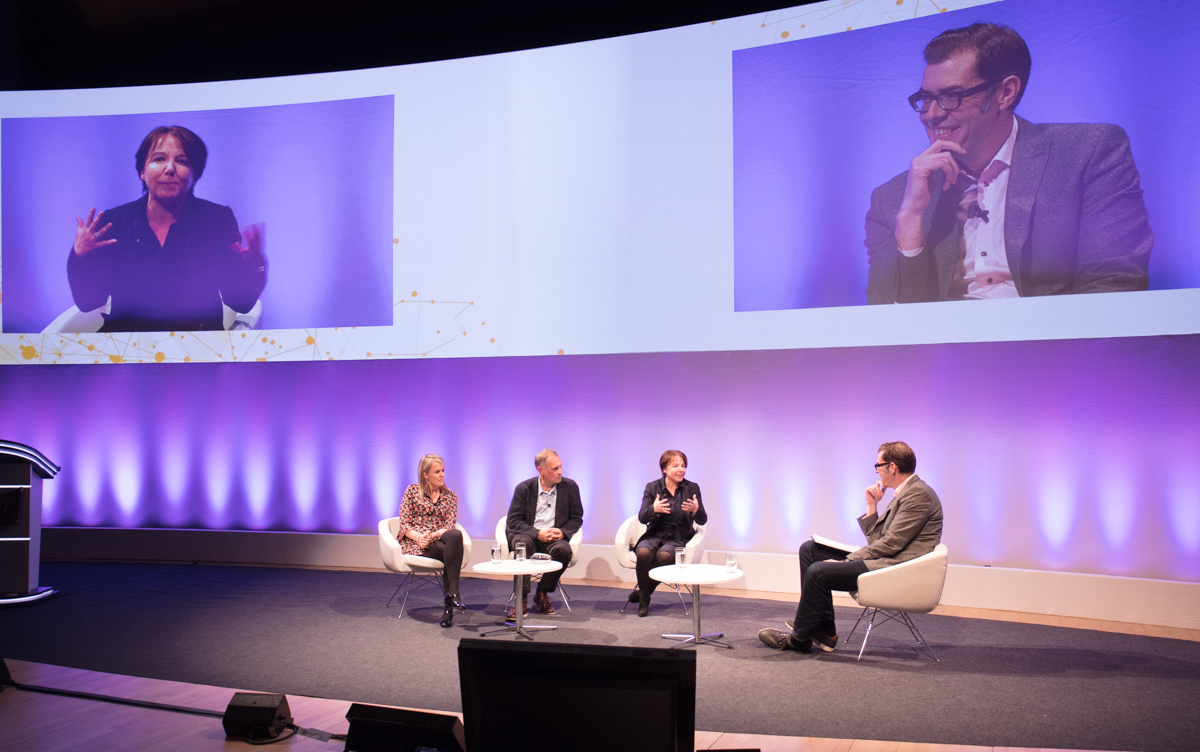
For ITV’s enthusiastic head of entertainment, Siobhan Greene, entertainment programmes were “the lifeblood of it all. For me, they mean everything. They’re the chance to really get a connection. When you get it right, the whole nation can be entertained.
“You’re uplifting and inspiring people and having a laugh and taking them out of whatever’s going on for them. It’s a shared experience… all the family, everyone together, live, as it’s happening, because we all want to be connected.”
BBC controller of entertainment commissioning Kate Phillips said that all the broadcasters were putting money into development at the moment (the BBC had around 50 shows it was working on) to find new hits.
“It’s great when you get a big hit… but they are hard to come by. I do look at ratings but, for me, it’s about having a variety of programmes,” explained Phillips. She said that a lot of the challenge was “keeping the shows at the top of their game”.
Edgar-Jones pointed out that five of last year’s biggest shows were from the entertainment genre and they tended to “generate the most ‘talkability’ around a channel.… Love Island was one of the most talked-about shows of the summer.”
He said one of the things about Sky getting back into entertainment was that he wanted to create a buzz and more shared experiences for viewers.
Many of the repeatable hits seemed to come from the same people, noted Osman. He then listed some of the “awful lot of casualties” strewn “along the entertainment highway”.
Among those that belly flopped into the ratings pool recently were Drive, Flockstars, 5 Gold Rings, That Puppet Game Show, The Getaway Car and Pitch Battle.
“Why is it so difficult to do this shiny-floor stuff?” asked Osman.
Greene said shows had to be allowed “to bed in”. She recounted working on Reborn in the USA, which got a 17% share and 3 million viewers when it aired in 2003. At the time, this was considered to be a small audience but “now, obviously, a smasheroo!” she laughed.
She insisted that “seeds of stuff that we would go on to do were sown there. There’s always something to learn from the shows if they don’t work.”
Greene continued: “When we did Stars in Their Eyes, it took five series to genuinely bed in. When The X Factor started, it was dodgy as to whether we were going to get the show back.
“Now, I’m in this unbelievably privileged position… I’ve got to back these shows and back the chance to do them again,” she said. Greene added that when Love Island (which she confirmed “is not going to move over to the main channel”) returned to ITV2, “it wobbled and, thank God, we kept going. And look at it now.”
She was given a round of applause after saying passionately, “You’ve got to have an attitude of looking at it positively and we’re going to die trying, Richard.”
“What about ‘Celebrities Die Trying’?” quipped Osman. He questioned whether the public had the same appetite for game shows as they did 10 or 15 years ago.
“I don’t think that’s true,” said Phillips – although “one of the challenges we have now, that we didn’t when these shows launched, is social media.… On the night, there’s this white heat… and people judging very fast. That’s very hard. You think: just give it a chance.”
“It’s not only about keeping the audience, it’s about getting the audience to the show,” she added.
On the night, there’s this white heat…and people judging very fast. That’s very hard. You think: just give it a chance
Two of the BBC’s most successful new shows have been The Michael McIntyre Chat Show and All Round to Mrs Brown’s. Osman argued that these shows were, essentially, talent vehicles that would be hard to sell outside the UK, unlike many traditional hit formats.
Sky has tried to compete in primetime with shows such as Bring the Noise, but Edgar-Jones maintained that “we are re-entering the entertainment game.… We’re looking at our entertainment as being a post-watershed offering. We have to inspire producers to do something new, a bit different.”
He explained that he was “taking movie-tropes as our starting point for creating entertainment shows”, such as Carmageddon, which he described as “Mad Max meets Wacky Races”.
However, as Phillips reminded everyone, “the biggest challenge” was finding shows that appealed to a broad audience.
Entertainment still rated well, compared with other genres, Greene pointed out, adding that ITV was “backing entertainment 100%”, with “investment in the shows that are doing well”. Audiences often built because “younger people watch it, then parents, then nans”.
Phillips admitted that the BBC had to cut its cloth to accommodate budget cuts but, “if there’s something we really like, we will find the slot for it”. She singled out a new Avalon show set in people’s homes, called The Button.
Sky was “making some big bets, and adopting a fewer, bigger, better strategy”, said Edgar-Jones. He reminded entertainment naysayers that “the quiz show was declared dead, then Who Wants To Be a Millionaire? came along.”
Netflix has, so far, concentrated on drama and documentaries rather than shiny-floor shows; is it going to follow us into this world, pondered Osman?
“Unscripted is not its model,” said Phillips. She said that entertainment worked best live.
Edgar-Jones suggested that something interesting could be done on Facebook Live – which Osman agreed was a useful platform for trying out new talent.
On the subject of talent, he asked Greene, what had gone through her mind, as a commercial rival of the BBC, when its talent pay was revealed this summer?
“Honestly, I thought they were quite cheap. I did, if you want the honest truth. I felt sorry for the BBC,” she replied. Edgar-Jones turned to Phillips and said: “The eco-system balances out. I thought you paid reasonably well.”
Reviving old entertainment hits remains an option because audiences already have a connection with them. After a few false starts, the BBC is finally bringing back The Generation Game – hosted by Sue Perkins and Mel Giedroyc.
However, Phillips said: “Sometimes, it’s even riskier to bring back an old show. We’re not bringing The Generation Game back because we think it will automatically get an audience... for me, it’s a really big risk.”
The panellists of ‘Session Eleven: A league of our own?’ were: Philip Edgar-Jones, director of Sky Arts and head of entertainment, Sky; Siobhan Greene, head of entertainment, ITV; and Kate Phillips, controller, entertainment commissioning, BBC. The chair was producer/presenter Richard Osman and the producer was Zai Bennett, with VT production by the production team of A League of Their Own and CPL.

